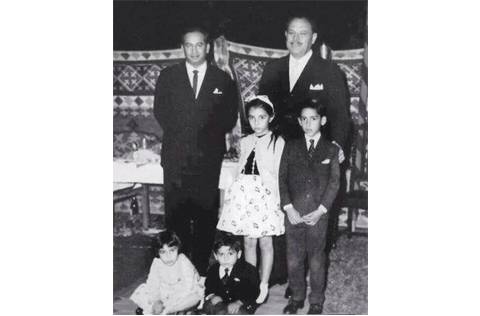
General Ayub Khan and Zulfikar Ali Bhutto with the latter's four children, Benazir, Murtaza, Sanam and Shahnawaz, at a dinner hosted by Mr and Mrs Bhutto in Rawalpindi when he was foreign minister. Ayub Khan had seized power in 1958. Bhutto, 30 years old at the time, became the youngest minister in Ayub’s cabinet; he was appointed foreign minister in 1963. Later, following an independent foreign policy, he developed differences with Ayub Khan and resigned from the cabinet in 1966. He then began his independent political career in opposition to Ayub Khan’s military rule and founded his own political party, the PPP, in 1967. Bhutto swept the then West Pakistan in the 1970 elections and became prime minister after the secession of East Pakistan, independent Bangladesh. Bhutto's socialist policies, authoritarian tactics and challenge to the military's power cost him his premiership, then his life in 1979. His heirs Benazir, Murtaza and Shahnawaz all struggled against the military's power for the next decades, finally meeting the same fate as their father. It is an irony that Ayub Khan's tender embrace of this family transformed into a fatal relationship between the Bhuttos and Pakistan's military, which continues to resist power-sharing with civilians. Sanam Bhutto is the only surviving member of the family.

